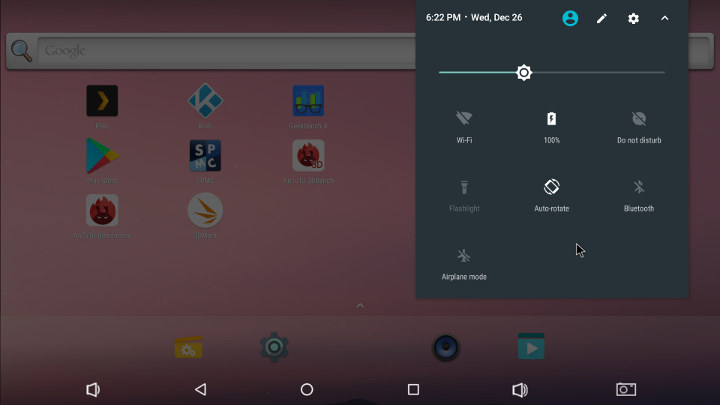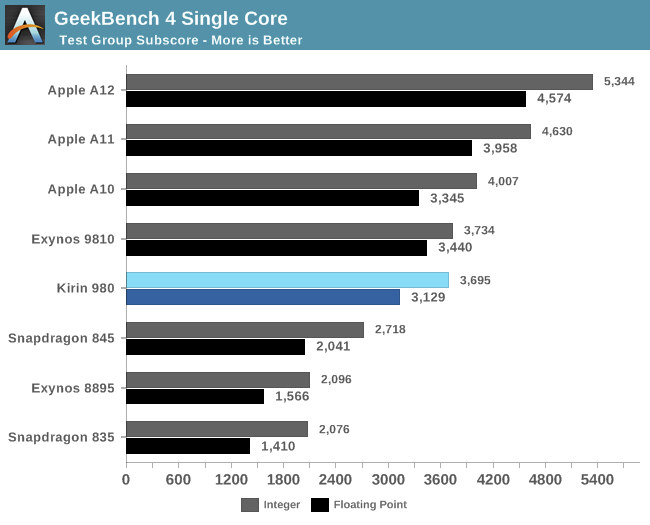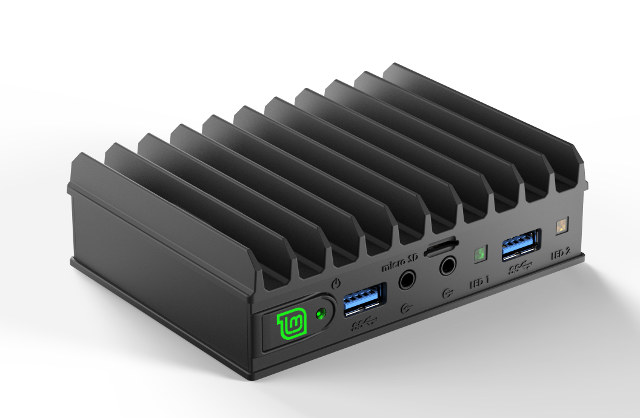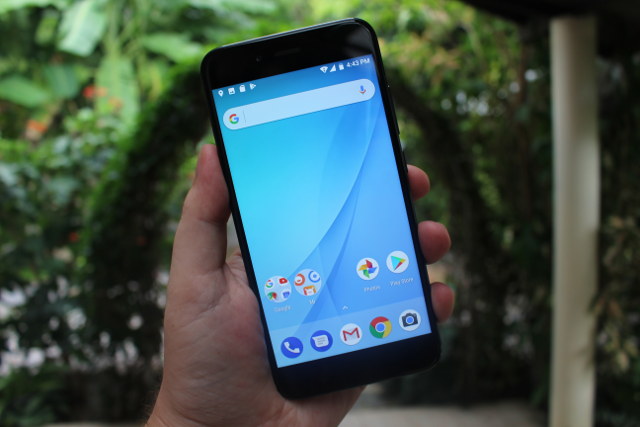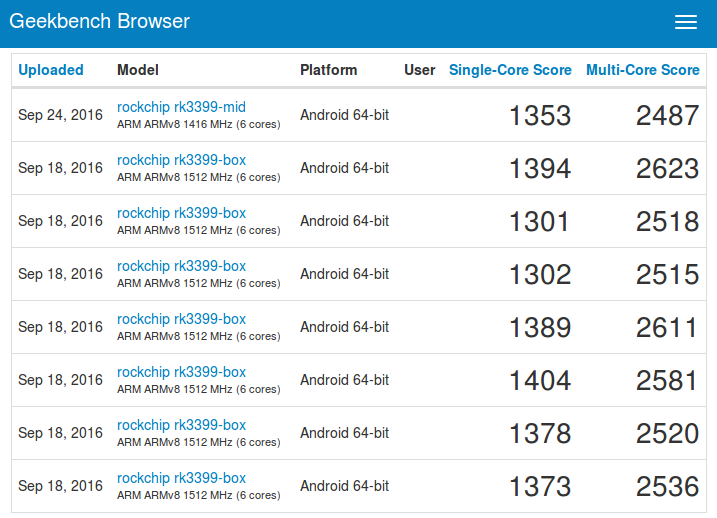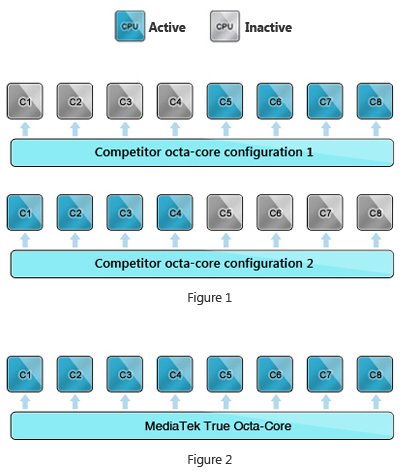Hey Karl here with a look at a preview of Android on the Khadas edge. Jean-luc has done 2 parts already. The first one looking at the hardware side, and a second looking at Ubuntu. A third img is available that for LibreELEC. The initial release was very barebones, and the 2nd version is much more polished with the Play Store installed now and overall feels snappier. Khadas is supposed to be sending an Edge over to Super Celeron, and I hope they follow through. DHL DHL really messed up my board. Here are some pics. I will only be testing with Ethernet because the WiFi antenna got damaged badly and even bent the heatsink. I think the board is slightly damaged as well. I can only flash using the buttons on the board and not the carrier board. Everything else seems OK. Due to the damage, I am using […]
HiSilicon Kirin 980 Benchmarks Show Cortex A76’s Impressive Performance & Efficiency Improvements
HiSilicon Kirin 980 was the first processor announced with Cortex A76 cores, which were said to deliver laptop-class performance, with 35% performance improvement over Cortex A75, and around twice the performance of Cortex A73 cores thanks to improvements, and a higher CPU frequency up to 3.0 GHz. But now that Huawei Mate 20 / Mate 20 Pro smartphones are out, various reviews have been published, and Anandtech was mostly able to confirm the claims. In most case, actual results were inline with expectation despite Kirin 980 clock speed being “limited” to 2.6 GHz. Looking at GeekBench 4 single-thread integer and floating-point scores, the Cortex A76 core based Kirin 980 is significantly faster than Cortex A73 powered Snapdragon 835 clocked @ 2.45 GHz. Precisely: 1.77x faster in the integer score,and 2.21x faster in the floating point score. SPECS2006 confirmed the good performance with 1.89x higher integer score, and 2.04x faster for […]
MintBox Mini 2 / Mini 2 Pro Apollo Lake Mini PCs to Ship with Linux Mint 19
While there are plenty of low power x86 mini PCs running Windows 10, and although in most case it’s always possible to install a Linux distributions yourself, it’s much more difficult to find products that ships with Linux by default. Launched a few years ago, MintBox Mini and MintBox Mini Pro mini PCs are such options being powered by AMD A4 Micro-6400T and AMD A10 Micro-6700T processor respectively, and running Linux Mint. The Mint team has now announced upgraded versions with MiniBox Mint 2 and MiniBox Mini 2 Pro, both based on Intel Celeron J3455 quad core Apollo Lake processor, and just differing by the amount of memory and storage. Just like the previous model, they collaborated with Compulab for the hardware, and went with a design based on Fitlet2 fanless mini PC with the following specifications: SoC – Intel Celeron J3455 quad core processor @ 1.5 / 2.2 GHz with […]
Xiaomi Mi A1 Smartphone Review – Part 2: Android 7.1.2 Firmware
Google recently announced several Android One smartphones, which are supposed to get 2 years of firmware updates, including to the latest version of Android, such as HTC U11 Life and Android One Moto X4. Many of those phones are limited to some specific countries, but Xiaomi Mi A1 will be launched in over 40 countries, and thanks to Chinese online shops is really available worldwide. GearBest sent me the latter last month, and in the first part of Xiaomi Mi A1 review I simply went through unboxing, booted the phone, perform an OTA update, and ran Antutu 6.x on the phone for a quick estimate of performance. Since then, I’ve had around four weeks to play with the smartphone running Android 7.1.2 (still), so I’m ready to report my experience in the second part of the review. General Impressions In the past year, I used Vernee Apollo Lite smartphone powered […]
Rockchip RK3399 Benchmarks Appear on GeekBench
Rockchip RK3399 hexa-core processor with ARM Cortex A72 and A53 cores and a Mali-T860MP GPU will soon be found in TV boxes, development boards, tablets, Chromebooks, virtual reality headset and more, and is widely expected to offer a significant performance boost against previous Rockchip processors, including RK3288, and outperform SoCs from competitors like Amlogic and Allwinner. We can have a first clue about the performance as Rockchip RK3399 boxes and one tablet are now showing up on GeekBench. The box is clocked at 1512 MHz, while the tablet is limited to 1416 MHz, but overall single-core score is about 1350 points, while multi-core score hovers around 2,550 points. I’m not that familiar with GeekBench so number don’t tell me anything. Let’s compare it against RK3288 which CPU-wise is the fastest processor I known of from Chinese silicon vendors targeting TV boxes. There’s a significant single-core performance boost (+73%), and lower […]
Mediatek Boasts True Octa-core MT6592, and GTS big.LITTLE MT8135 SoCs
We already knew Mediatek was working on MT6592, an Octa-core Cortex A7 processor for smartphones, and MT8135, a quad core bit.LITTLE processor for tablets, but in the last few days, the company revealed a bit more information about its two new application processors, mainly to show how better there are compared to the competition. Mediatek MT6592 Octa-core Cortex A7 With Exynos Octa (5410), Samsung was the first company to release an ARM powered Octa-core application processor, but Meditak explains their solution is better because MT6592 can use all 8 cores simultaneously whereas Exynos 5410 is limited to 4 at at time, and the claim is true because Samsung big.LITTLE implementation choice. Exynos 5420 will change that however, as soon as this month, but Mediatek obviously did not feel necessary to mention this details. The company expected those 8 cores to improve current applications such as : Advanced web browsing – […]


